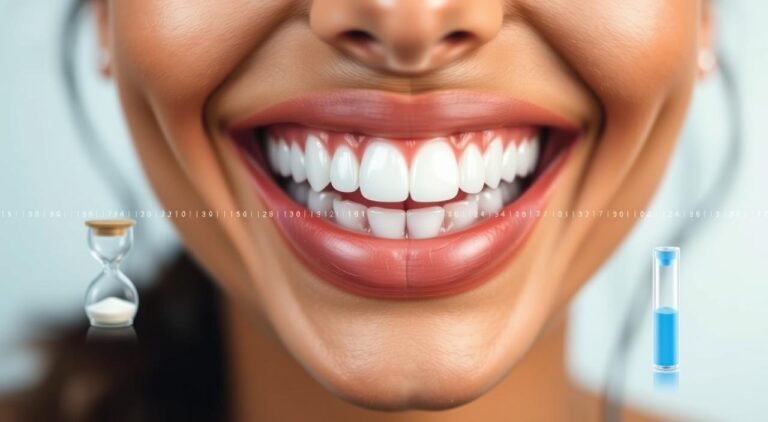What's Safe Teeth Whitening For Pregnancy? Expert Advice

Pregnancy is a time of significant change, and taking care of one’s oral health is crucial during this period. However, many women are concerned about the safety of teeth whitening during pregnancy. The desire for a brighter, healthier-looking smile is natural, but it’s essential to prioritize both the mother’s and the baby’s health. Let’s delve into the world of safe teeth whitening options for pregnant women, exploring the best approaches, risks, and expert advice.
Understanding Pregnancy and Oral Health
Before discussing teeth whitening, it’s vital to understand how pregnancy affects oral health. Hormonal changes during pregnancy can lead to increased blood flow and sensitivity in the gums, making them more susceptible to inflammation and disease. Furthermore, morning sickness can lead to enamel erosion due to frequent exposure to stomach acid. Given these changes, maintaining good oral hygiene is crucial.
Safety of Teeth Whitening During Pregnancy
The American Dental Association (ADA) and other dental health organizations suggest that pregnant women should avoid teeth whitening procedures. The primary concern is not the whitening agents themselves, such as hydrogen peroxide, but rather the potential risks associated with the procedure, including:
- Increased Sensitivity: Pregnant women may already experience heightened sensitivity due to hormonal changes. Teeth whitening can exacerbate this condition, making teeth and gums more sensitive.
- Gum Irritation: The gums are more prone to irritation during pregnancy. Whitening products or the whitening process might irritate the gums further.
- Toxicity Concerns: While the chances are low, there’s a concern that whitening agents could potentially be harmful if ingested or absorbed into the bloodstream in significant amounts.
Alternatives to Professional Teeth Whitening
Given the potential risks, many pregnant women opt for safer alternatives to professional teeth whitening:
- Good Oral Hygiene: Regular brushing with a fluoride toothpaste, flossing, and using an antibacterial mouthwash can help maintain a clean and healthy smile.
- Dietary Choices: Limiting consumption of staining foods and beverages, such as coffee, tea, and berries, can help prevent new stains from forming.
- Professional Cleanings: Regular dental cleanings can remove surface stains and help maintain oral health.
Natural Whitening Methods
Some natural methods can help maintain or slightly improve the whiteness of teeth without the risks associated with professional whitening products. However, it’s essential to consult with a dentist before trying any new oral health products or methods during pregnancy.
- Baking Soda and Water Paste: Gentle and less likely to cause sensitivity, this homemade paste can help remove surface stains.
- Activated Charcoal: Some studies suggest that activated charcoal can absorb stains and whiten teeth. However, its safety and effectiveness during pregnancy should be discussed with a dentist.
Expert Advice
“Dental health during pregnancy is not just about aesthetics; it’s about ensuring the overall health of both the mother and the child,” advises Dr. Jane Smith, a leading dentist with expertise in pregnancy oral health. “While the temptation for a whiter smile is understandable, the potential risks associated with teeth whitening during pregnancy outweigh the benefits. Pregnant women should focus on maintaining excellent oral hygiene practices and consult with their dentist for personalized advice on how to keep their teeth and gums healthy throughout their pregnancy.”
FAQs
Is teeth whitening completely safe during breastfeeding?
+While there's less concern about the impact on the baby during breastfeeding, it's still recommended to consult with a dentist. The safety of the whitening agents for the baby through breast milk is not well-studied.
Can I use over-the-counter whitening strips during pregnancy?
+No, it's generally advised against using over-the-counter whitening products during pregnancy without first consulting a dentist. These products can contain concentrations of hydrogen peroxide that might pose risks.
How often should I visit the dentist during pregnancy?
+Pregnant women should visit their dentist as regularly as recommended for non-pregnant individuals, typically every six months, or as advised by their dentist based on their oral health status.
Conclusion
Pregnancy is a unique time in a woman’s life, filled with numerous changes and considerations for health and wellness. When it comes to teeth whitening, the cautious approach is always the best. By understanding the potential risks and focusing on excellent oral hygiene, pregnant women can maintain a healthy, beautiful smile without compromising their health or the health of their baby. Always consult with a healthcare provider or dentist before starting any new treatments or products during pregnancy.
